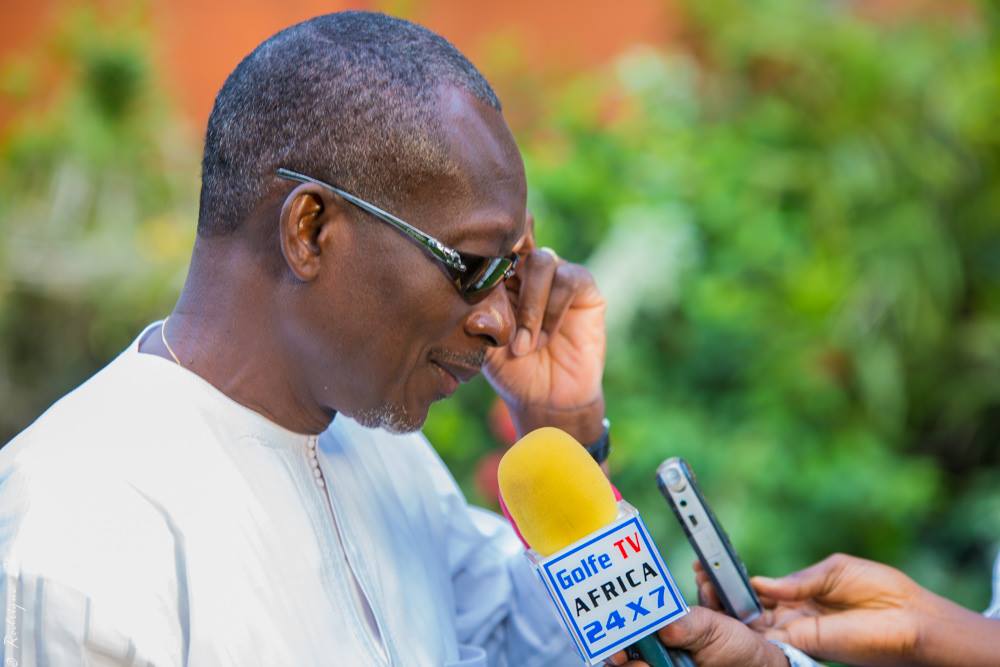
Earlier this month, voters in five countries across Africa went to the polls in what some global news outlets called ‘Super Sunday’ across the continent. 
In three of those countries, the results were foregone conclusions in what no one would describe as truly free and fair elections:
- In the Republic of the Congo, known as ‘Congo-Brazzaville,’ because it lies to the west of the far larger Democratic Republic of the Congo to its east, Denis Sassou Nguesso easily won reelection — he’s held power since 1979, barring a short-lived hiatus from 1992 to 1997, after his ousting in a presidential election.
- In Niger, a country of over 17 million in west Africa, Mahamadou Issoufou easily won reelection after first taking power in 2011. The opposition had boycotted the vote.
- Ali Mohamed Shein easily won reelection as the president of Zanzibar (an autonomous region of Tanzania) after the opposition boycotted a re-run of a flawed election last October.
But in Benin, a sliver of a country nudged between Togo and Nigeria on the west African coast, voters selected someone who might be considered ‘Trumpian’ in his own right — a business tycoon who dominates the country’s most important industry, cotton production, who drives around in imported Jaguars and Porsches and wears designer clothes, a tycoon whose wealth comes in ample part from connections to the right people, a ‘bad boy’ who swept to power with no real government experience.
Patrice Talon, that Beninese businessman, easily won the presidency in a March 20 runoff with 65.37% of the vote to just 34.63% for former prime minister Lionel Zinsou. In the first round on March 8, Zinsou led with 28.44% to just 24.80% for Talon.
But no emerging democracy is perfect.
Talon, who controls the tariff collections at the port of Cotonou, the de facto capital and an important economic hub, is also accused of poisoning his predecessor, Thomas Boni Yayi, an economist and banker who won the presidency in 2006 (and reelected in 2011), bringing to an end over three decades of rule dominated by Mathieu Kérékou. Under Kérékou, who took power in a counter-coup in 1972, the country was renamed (from the Republic of Dahomey) in 1975, and its economic orientation zigged from socialism to state capitalism, just as Kérékou zagged from Islam to born-again Christianity. Though Boni Yayi has presided over middling GDP growth and few political reforms, he and the Beninese parliament abolished the death penalty in 2011. Unlike many African leaders, from the esteemed (Rwanda’s Paul Kigali) to the less-esteemed (Congo’s Joseph Kabila), Boni Yayi never attempted to xxxx — in its own way a catalyst for the rule of law.
Before their falling out, it was Boni Yayi who had awarded Talon with lucrative contracts for the country’s cotton industry and the Cotonou port contract. While Boni Yayi ultimately pardoned Talon, who financially backed his presidential campaigns in 2006 and 2011, clearing the way for Talon’s presidential bid, Benin’s new president-elect still faces potential prosecution in France, from which Benin (then Dahomey) won its independence in 1960, and where Talon lived in exile from 2012 until his return to Benin in 2015.
Like Trump, Talon proved a master of racial politics. His opponent, the French-born and French-educated Zinsou, is an investment banker and a former aide to former French foreign minister Laurent Fabius. Zinsou was appointed only last year as prime minister in what was widely seen as Boni Yayi’s attempt to propel Zinsou to the presidency this year. But Talon essentially campaigned against the Zinsou as a ‘white man,’ openly calling him a ‘French’ prime minister of Benin. The lighter-skinned Zinsou is part of the Yoruba ethnic group, while Talon belongs to the southern Fon ethnic group, which historically dominated the region, politically and economically, stretching back to the days of the Kingdom of Dahomey, once the epicenter of west Africa’s coastal slave trade.
With a nominal GDP per capita of less than $800, Benin is highly dependent on commodities exports — chiefly cotton, but also nuts and other agricultural products, as well as modest amounts of gold. China is its leading trade partner, and Beijing has increasingly played an important role.